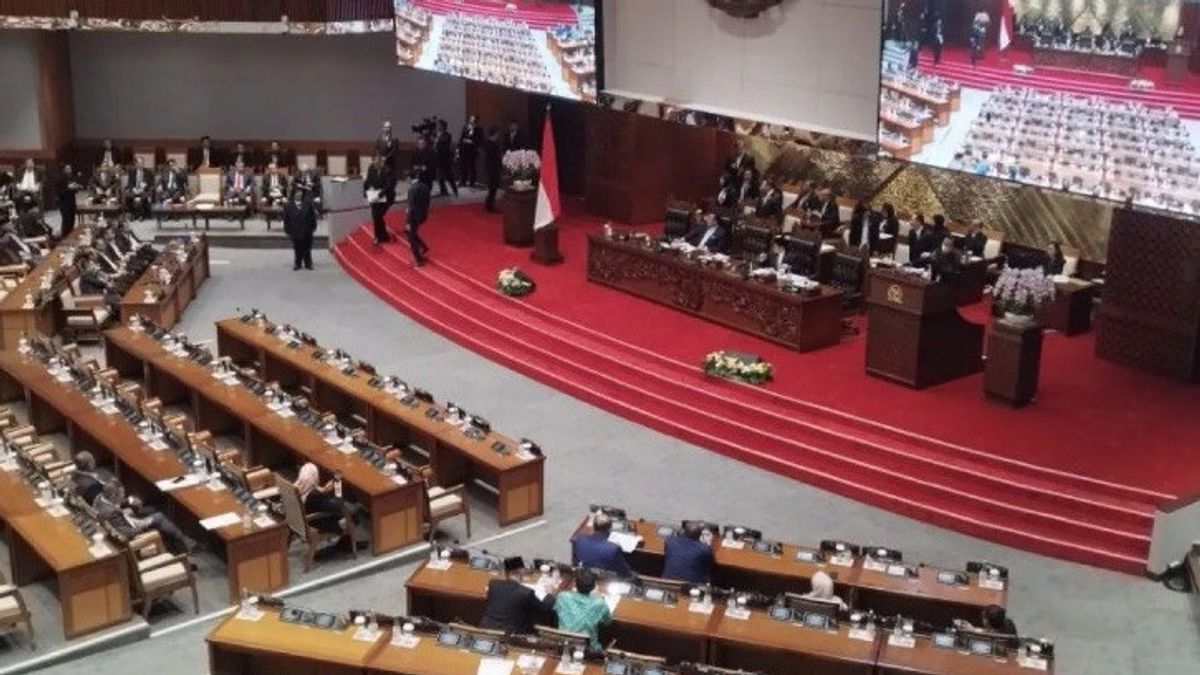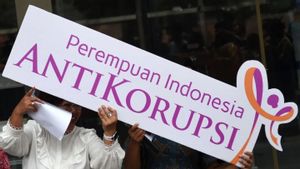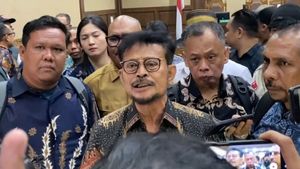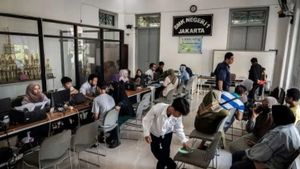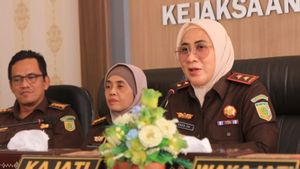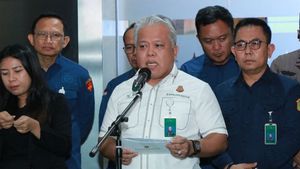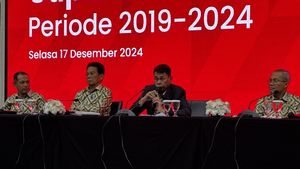The issue of women's representation is often carried by various interests, including the domination of male polarase, according to the Executive Director of the University of Indonesia Political Studies Center (PUSKAPOL UI) Hurriyah.
Previously, the Center for Stratetic and International Studies (CSIS) found that the number of female legislative members elected in the 2024 General Election had increased compared to previous elections.
However, in a CSIS report written by the Head of the Department and Social Change CSIS Arya Fernandes, it was stated that of the 127 elected female candidates, 58 of them were indicated by political dynasties, while the other 69 were not.
"Although the representation of selected female candidates has increased compared to the previous election, there are indications that 45.67 percent of the 127 selected female candidates are associated with political dynasties," Arya wrote, as quoted by Kompas.
The legislative candidates who are associated with political dynasties come from the families of public officials who have or are in office, whether their children, wives, brothers, husbands, brothers, nephews, or have other kinship relationships.
Judging from the political party (political parties) of origin, the PDI-P is the party with the elected female candidates who are most indicated by political dynasties. Of the 27 PDI female candidates, 16 people or 59.3 percent were associated with political dynasties. This figure was followed by the Nasdem Party (57.1 percent) and the Gerindra Party (57.9 percent).
Meanwhile, the National Awakening Party (PKB) has become the political party for which female candidates are elected to the least political dynasties. Of the total 14 female candidates, only one has been associated with a political dynasty.
According to the Executive Director of PUSKAPOL UI Hurriyah regarding indications of political dynasties in women's representation in Senayan, it has actually been a concern for a long time. A similar finding was also revealed by PUSKAPOL UI in the previous election. Hurriyah said that the condition of women's representation in the 2024 election was not much different from 2019.
At that time, they analyzed the trend of women's representation, but also the aspect of women's electability background.
"Our findings are that more than 40 percent of women selected from 118 members of the Indonesian House of Representatives, women, appear in kinship relations," said Hurriyah during a media discussion on gender and corruption held in Tebet, South Jakarta, Wednesday, July 10, 2024.
This, explained Hurriyah, occurs because women's representation is often used for various interests, including male paronases.
"So we're not talking about women's representation, but we're talking about how to dominate the male platformage network that tries to take advantage of various momentum, take advantage of regulatory weaknesses, take advantage of the momentum of women's quota regulation to perpetuate the paronace network and women is one way. "he added.
Regarding the political dynasty in the legislature, Hurriyah said that basically it actually does not only happen to women representatives, but it can happen to children, relatives, relatives who have kinship relations.
Since the 2009 election, PUSKAPOL has had three main trends that encourage the selection of a person, namely kinship, popularity, and economic status relations, where those with higher economic status have a greater chance of being elected.
Seeing that there is a gap in utilizing 30 percent of women's representation regulations, PUSKAPOL UI encourages women's candidacy to be accompanied by substantive strengthening, affirmative policies within political parties to avoid women are only used as proxies from male polarase networks.
In the 2019 research, PUSKAPOL UI proposed a funding policy for female politicians. This is intended so that political parties have the seriousness of allocating a number of funds for the regeneration of female politicians, so that when they want to nominate women they invest first.
"So it doesn't come from a woman's comet for members of the legislature, but taken from her cadres who have been trained, they have a good perspective on elections, about democracy, about women's politics," explained Hurriyah.
"Even if they have a kinship relationship with someone, their capacity can be relied on," he continued.
SEE ALSO:
With a good regeneration process, it is hoped that it will be directly proportional to the capabilities and competence of the elected representatives of the people. He also gave an example of how the Kennedy clan in the United States, one of the most popular political officials who more than half a century in charge of important positions, or the dynasty of former Singaporean Prime Minister Lee Kuan Yew.
"So if you want to imitate a dynasty, don't just take the dynasty, but there is a regeneration process going on," he said.
"The problem is that in Indonesia our politicians want to be good but in an instant way, while they are still in power, their children, their wives, relatives are put forward," added Hurriyah.
According to him, this also confirms the argument that the dominance of male television networks not only exacerbates corrupt practices, but also hinders women's political participation.
"If the number of women's representations increases, they are not the ones who have a female perspective but only become male paronase proxies," he concluded.
The English, Chinese, Japanese, Arabic, and French versions are automatically generated by the AI. So there may still be inaccuracies in translating, please always see Indonesian as our main language. (system supported by DigitalSiber.id)
